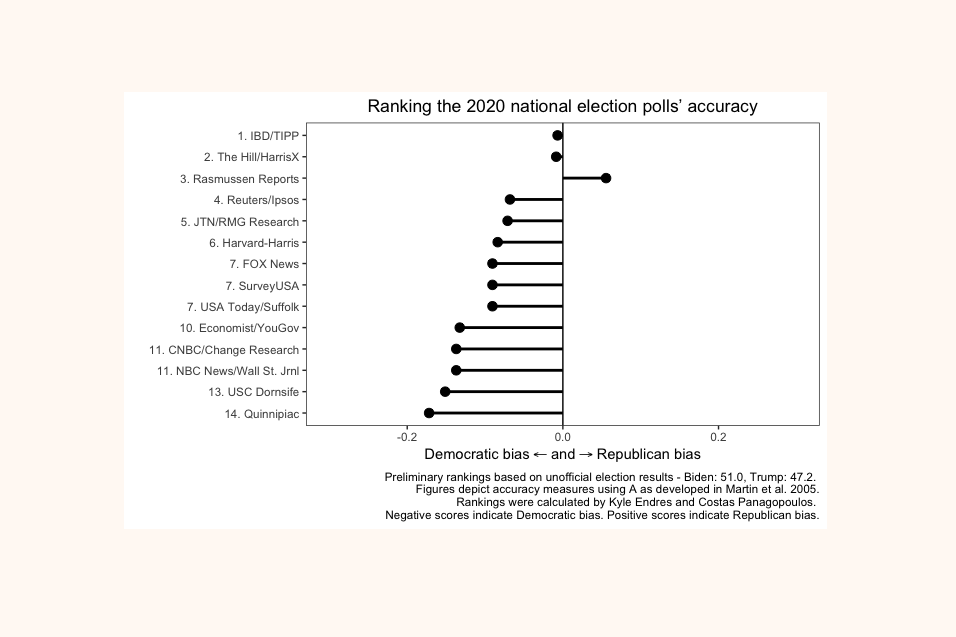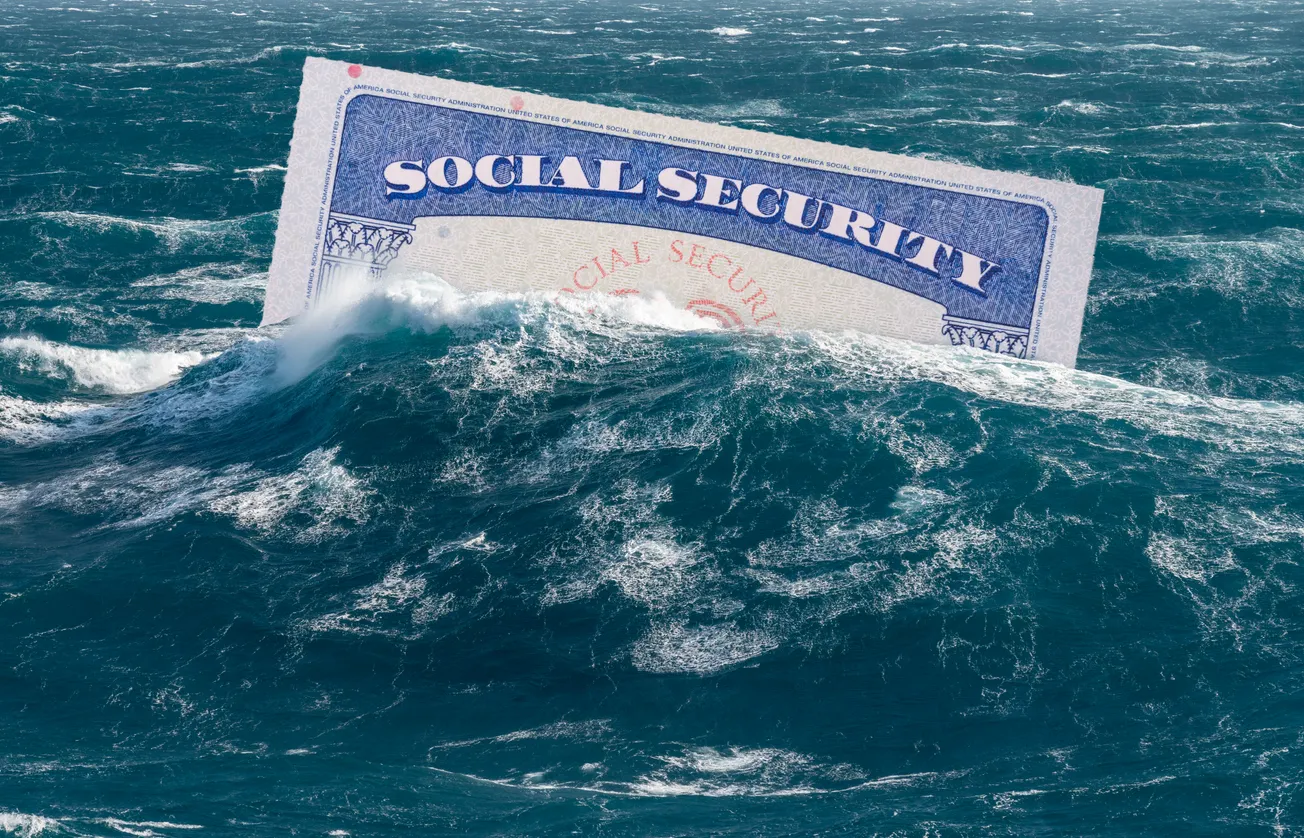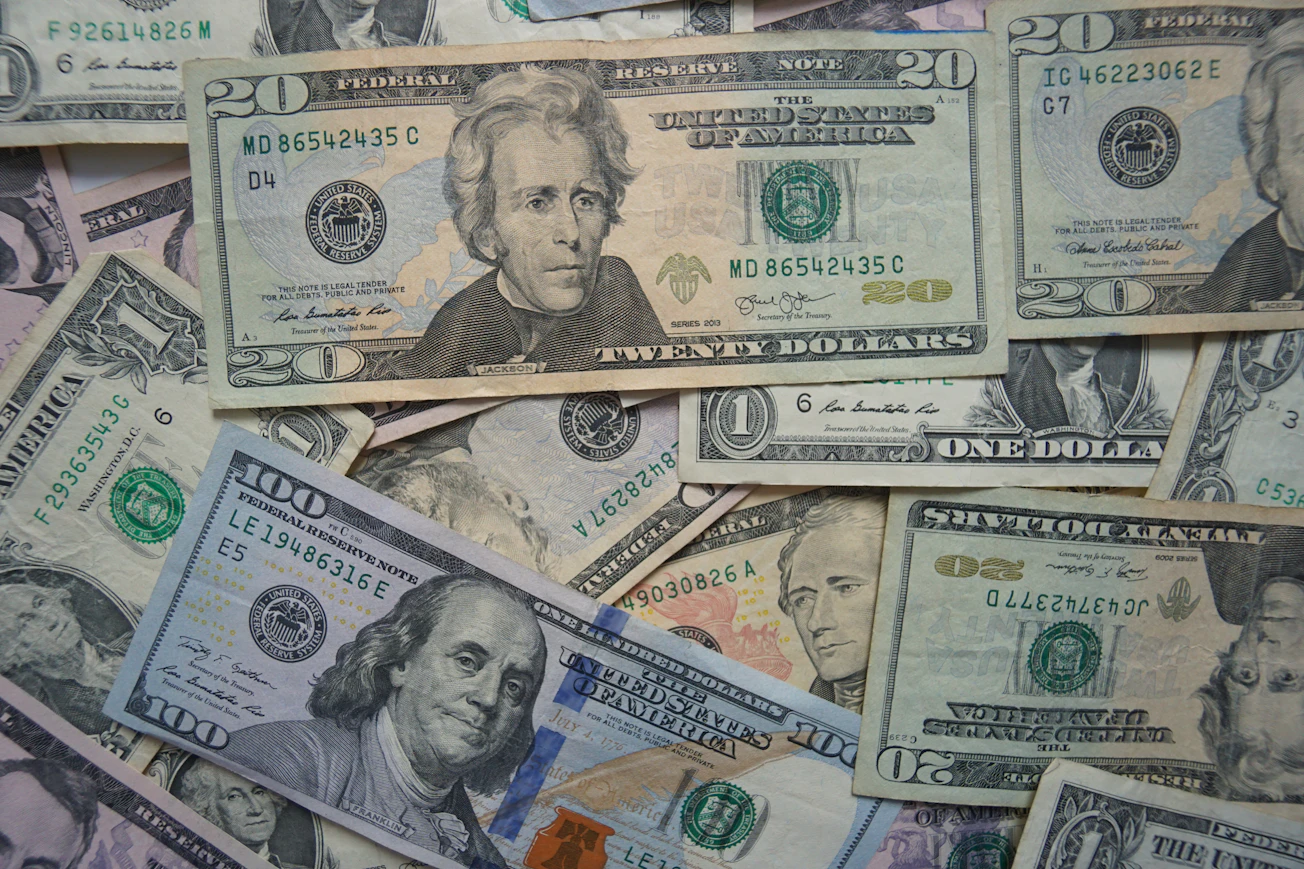- Majority of Americans find the debt trajectory unsustainable
- Republicans hold an advantage in public trust for fiscal matters
- GOP's trust advantage is driven by self-confidence and independent support
On September 19, 2023, the U.S. Department of the Treasury informed Americans of a historic milestone - the national debt is crossing $33 trillion for the first time.
Today, on December 6, the debt stands at $33.82 trillion.
That is, in a period of 78 days, the debt has increased by $818 billion, at a daily rate of $10.5 billion per day!
At the current rate, the next milestone, passing $34 trillion, will occur a few days before Christmas, around December 23, 2023. In short, we will have increased the nation’s debt by a trillion dollars in 95 days.
The high spending and fiscal mess caught the attention of two out of the three credit rating agencies, leading to the downgrade of U.S. debt from its gold-plated AAA status.
First, on August 1st, credit rating agency Fitch Ratings downgraded U.S. Treasuries to AA+ from AAA. Fitch explained that:
it reflects the expected fiscal deterioration over the next three years, a high and growing general government debt burden, and the erosion of governance relative to AA and AAA rated peers over the last two decades that has manifested in repeated debt-limit standoffs and last-minute resolutions.
Following Fitch, on November 10, Moody’s downgraded its outlook for the U.S. government’s AAA-rated credit to “negative” from “stable,” saying the U.S. government was at risk of dropping a notch because of high budget deficits and Congress’s inability to deal with them.
Like borrowers with low credit scores paying a premium to the banks to finance car loans or mortgages, the Treasury has to pay higher interest rates on its debt to compensate for the increased risk.
The U.S. paid nearly $900 billion in interest during the last fiscal year, and at the current interest rates, the cost of servicing the debt will exceed $1 trillion a year.
Recently, the Wall Street Journal headlined, “The Economy Is Great.” Nobel Laureate Paul Krugman, a Biden ally, described the economy as "surreally good." Meanwhile, Treasury Secretary Janet Yellen proclaimed that the United States economy is not only “doing very well,” but that the nation can “certainly afford” to pay for two wars at the same time: Ukraine and Israel.
But Americans don’t agree with the elites. They think the current trajectory is simply not sustainable.
In a TIPP Poll completed in early December, nearly two-thirds said the trajectory of the national debt is not sustainable. Americans of all stripes and persuasions subscribe to this notion. That includes 50% of Democrats, 74% of Republicans, and 70% of independents; ideologically, 71% of conservatives, 65% of moderates, and 56% of liberals.
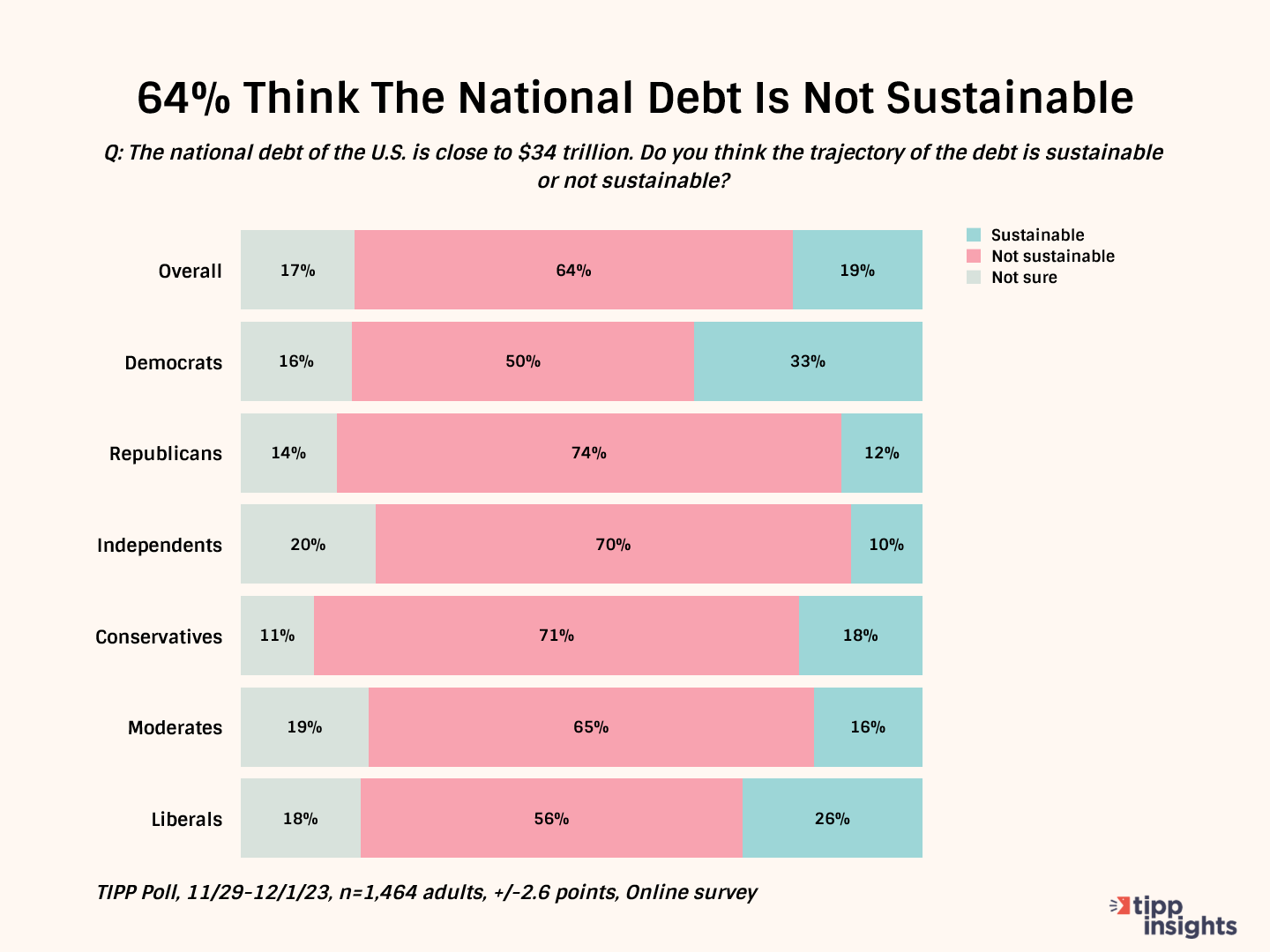
To understand what Americans think should be done to control out-of-control debt, we asked a question in the TIPP Poll: What should the U.S. do to reduce its debt? We provided the following choices: cut spending, increase taxes, or both, and not sure.
Over one-half (52%) want to cut spending, roughly one in ten (9%) think taxes should be increased, another quarter (25%) desire both, and 13% are not sure.

We allocated “both” to the two actions of increasing taxes and cutting spending, which yielded the chart below.
Notice that over 60% of all categories favor spending cuts. Also, 50% of Democrats and 53% of liberals favor increasing taxes, while the enthusiasm to raise taxes is relatively low among others.

Republicans’ Edge
More Americans trust the Republican Party than the Democratic Party when it comes to controlling government spending. This nine-point advantage mainly stems from Republicans' self-confidence (79% for Republicans vs. 64% for Democrats). Additionally, Republicans lead among independents by 23% to 13%. Interestingly, 53% of independents do not trust either party.

How about reducing taxes? Once again, more Americans have faith in the GOP than the Democratic Party, with a margin of 36% to 31%. Self-confidence is higher among Republicans (77%) compared to Democrats (67%). Further, more independents trust Republicans than Democrats (23% to 18%). Interestingly, nearly 49% of independents don't trust either party.

We observe a similar pattern when it comes to who Americans trust to grow the economy. The GOP has an eight-point advantage, 41% to 33%, over the Democratic Party. This advantage is driven by higher self-confidence (88% compared to 74% for Democrats) and a 29% to 18% lead among independents.
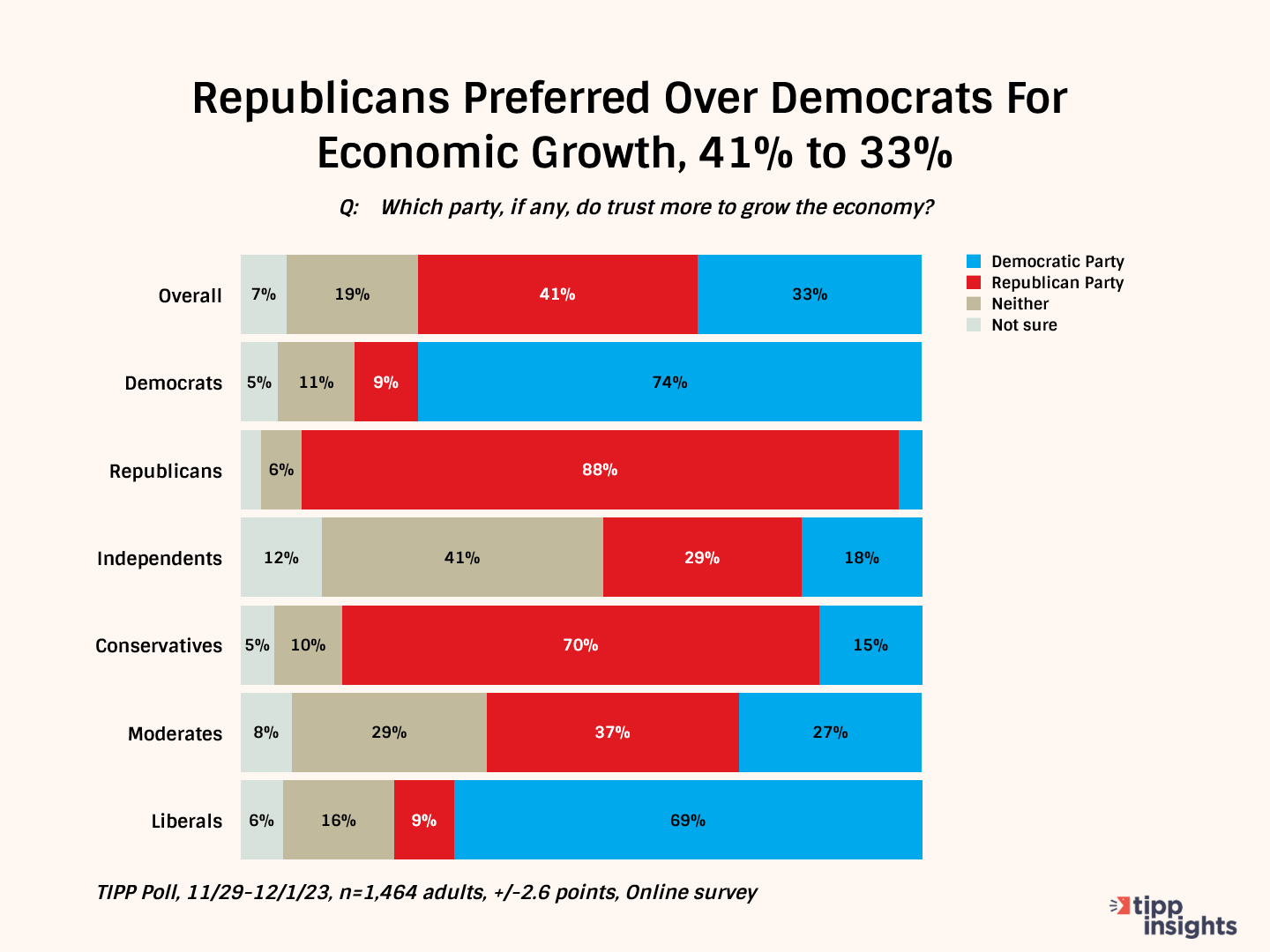
Perception is reality. To gain an advantage in 2024, the GOP must solidify the advantage it has by being fiscally austere.
Want to dig deeper? Download crosstabs from our store for a small fee!
We could use your help. Support our independent journalism with your paid subscription to keep our mission going.
Our performance in 2020 for accuracy as rated by Washington Post:
